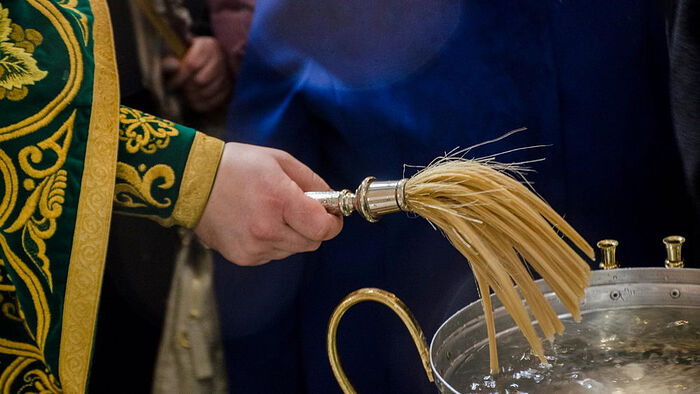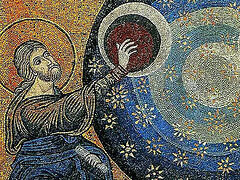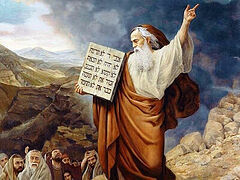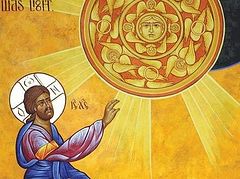Why do we need the sanctification of material things and how does it happen?
It seems to me that to some extent our missionary impulse, our desire to share faith with those who have not yet found it indicates our interest and involvement in our faith.
Take, for example, someone who is in love or just passionate about some hobby—he always talks about the object of his passion, and he is ready to discuss and talk for hours about what he is so strongly attached to. The trouble is that such an attitude to matters of faith is rare. One of such zealots was the Holy Hierarch Cyril of Jerusalem, whose memory the Orthodox Church honors on March 31. In the first centuries of Christianity there were many missionaries, ascetics, and theological luminaries. The names of many Fathers are well known to us, but I would like to speak about why St. Cyril stood out.
Very few details on the saint’s life are extant, so it will be easy to mention them here. The estimated date of St. Cyril’s birth is 315. He most likely came either from Jerusalem or from its immediate environs. Who the saint’s parents were and where he received his education is unknown. It can be said for certain that from a fairly early age St. Cyril began to lead an ascetic life. Thanks to his zeal at about the age of twenty Archbishop Macarius of Jerusalem ordained him deacon. In 345, Macarius’ successor, Maximus, elevated the saint to priesthood.
Here we come to St. Cyril’s distinctive feature. He was charged with the duty of instructing catechumens, and thus with responsibility for their due preparation for the sacrament of Holy Baptism. I will pass over in silence how today in most cases both godparents and natural parents relate to the sacrament of Baptism of their children. And here the example of the industriousness of St. Cyril towers over us in silent reproach. We often do not control our tongues, but the holy hierarch understood that spiritual life depended on his words, depended on what kind of Christian the person standing before him would become. His Catechetical Lectures are the saint’s primary written legacy, which everyone can read.
Thanks to his manifest zeal, after Archbishop Maximus the clergy and the people elected St. Cyril as their primate. Presumably this took place in 350 or 351. The beginning of his archpastoral ministry was marked by the appearance of the Cross in the sky, stretching from Golgotha to the Mount of Olives. It was not just a beautiful legend, but a real miracle, recorded by some historians and described by the saint himself. Like any genuine miracle, the appearance of the Cross had a purpose and a meaning—thanks to it the people realized that they had not made a mistake by choosing their primate, and a considerable number of pagans and Jews converted to Christianity.
St. Cyril’s zealous ministry manifested itself not only in his preaching, but also in concrete deeds. He was strongly disliked by Acacius, Metropolitan of Caesarea in Palestine, who adhered to Arian views. When famine broke out in Jerusalem, St. Cyril first distributed all the church money among the needy, and then, for the same purpose, sold all church vessels that it is not improper to sell. For this reason Acacius accused him of embezzlement of church property. In 357 the Metropolitan of Caesarea convened a council and deposed St. Cyril. For over three years the holy hierarch had to wander, finding refuge with Bishop Silouan of Tarsus, until he was returned to his see during the reign of Julian the Apostate. It is known that this emperor, wishing to mock the Christians, made an attempt to build another Temple in Jerusalem. The Jews were jubilant, but the holy hierarch made it clear that those plans were not destined to materialize. And so it happened: An earthquake destroyed not only the remaining foundations of the Temple, but also the buildings around it. The next exile of St. Cyril, a longer one (367–379), took place during the reign of the Arian Emperor Valens. Five years before his death, he took part in the meetings of the Second Ecumenical Council.
Amidst these dry facts I would like to draw your attention to an interesting episode. In 382, another Council of Constantinople was convened, and its members sent a letter to Rome in which St. Cyril was commended for his services to the Christian faith, and the Church of Jerusalem was called “the mother of all Churches”. On March 31, 386, this worthy archpastor reposed.
Now I would like to say a few words about some rather interesting arguments by St. Cyril. Most ordinary people believe that in Christianity, particularly in Orthodoxy, we should abhor not only the human body, but also matter, as such. In fact, we all perfectly understand that the material world was created by God, and therefore it, like the whole of creation, is “very good”. It should be said that even some Christians sometimes go to excesses in terms of a contemptuous attitude towards matter. In response I would like to cite St. Cyril’s thought that matter plays an important role in our salvation. He points out that, for example, the sacrament of Baptism, even with the reception of the Holy Spirit, will not be valid without water. Here the holy hierarch refers us to the six days of creation and points out that both Heaven, the abode of angels, and the earth, the abode of humanity, were created from water. Inasmuch as all matter was created by God, all of it needs to be sanctified. In the water St. Cyril saw the “beginning of the world”, through which the rest of the world receives sanctification, because the Spirit of God moved upon the face of the waters (Gen. 1:2).
As a result of the Fall, the sanctification of the world was lost—and it still needs special sanctification and blessing. According to the saint, Christ’s work of redemption included the abolition of the curse not only in man, but also in the world, giving the blessing to both mankind and the whole world: “Jesus assumes the thorns, that He may cancel the sentence; for this cause also was He buried in the earth, that the earth which had been cursed might receive the blessing instead of a curse.”1
Of course, man is guilty of the main tragedy of the universe. The curse of unreasonable nature, material things and even elements, occurred due to the motivated action of his will and mind. The teaching of the responsibility of people for the material world, which we often forget, was very close to the holy hierarch. Hence it follows that the sanctification of matter directly depends on the sanctification of man. If you like, this is an excellent explanation of cases when the elements or wild animals obeyed holy people. Here also lies the answer to the problem of the existence of evil and suffering in the world. God is not the author of evil because He created nature; and evil did not come from nature, but from will, and will is the lot of humanity. Only man was created in the image of God: according to St. Cyril, the image is expressed in the gift of free will, which is the basis, depending on its use, both for reward and for punishment.
Here it is important to note the idea that virtues that are not acquired by efforts have no value: “The sheep is gentle, but never was it crowned for its gentleness: since its gentle quality belongs to it not from choice but by nature.”2
Summarizing what has been stated, it should be said that our efforts in the spiritual life bear consequences not only for ourselves, but for the whole world.
Its final transformation will come only after the Last Judgment, but even before that any of us can both desecrate and sanctify a particle of the world around him. Although most of the words of St. Cyril of Jerusalem are addressed to those who are just preparing for Baptism, as we see, they contain many useful thoughts for us, “experienced” Christians. Apparently, with people like St. Cyril, catechumens are even better, more industrious and zealous than some baptized Christians... We must draw conclusions.




